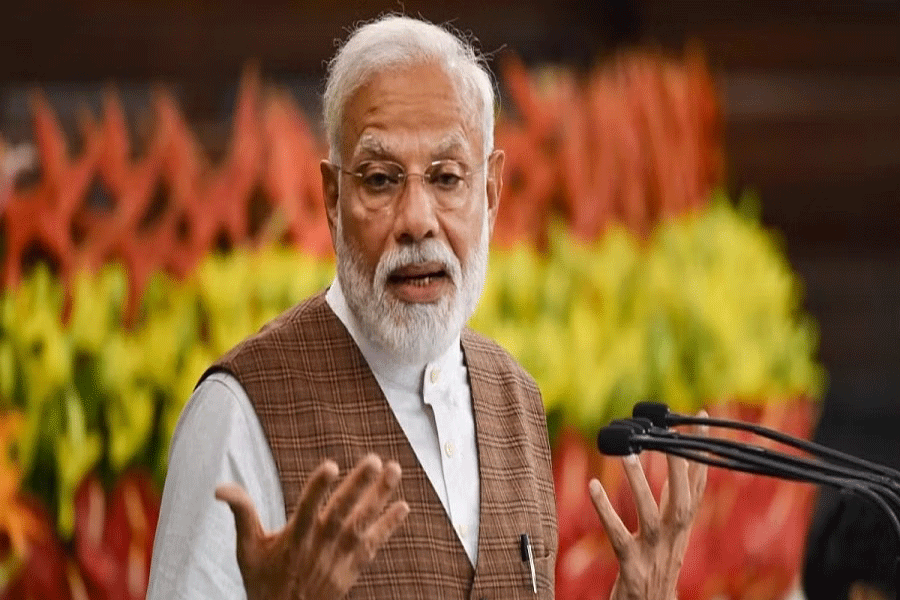
Washington: Plastic waste and its accumulation in nature has become a major environmental concern recently. While plastic pollution in the oceans is certainly a concern, the presence of plastic in soils around the world is also known to cause major environmental and health problems.
Natural and anthropogenic processes cause plastics to break down into smaller particles, called microplastics (MPs), in soil, significantly altering soil properties. Furthermore, they are absorbed by plants, potentially entering the human food chain and causing health problems.
Understanding the impact of MPs on soil quality is important for a company’s sustainability, especially in the ‘Environment’ part of its environmental, social and governance (ESG) goals. Global companies are often challenged by increasing pressure to adopt eco-friendly practices, with a particular emphasis on tackling plastic-related issues at the heart of these projects.
However, the underlying mechanisms controlling the environmental impact of soil MPs are still unknown. Due to soil heterogeneity and MP heterogeneity, soil-MP interactions are complex, making it difficult to predict and mitigate their impacts on soil parameters.
To address this gap in soil MP research, a group of scientists led by Professor Yong Sik Ok used machine learning (ML) algorithms to assess and predict the impact of MP on soil parameters.
Professor Yong is a KU HCR Professor, President of the International ESG (Environmental, Social and Governance) Association (IESGA) and President and Program Director of the Sustainable Waste Management Program (APRU SWM Program) of the Association of Pacific Rim Universities.
“ML is a dynamic and transformative field of artificial intelligence (AI) that uses algorithms and models to learn and make predictions with great accuracy from huge datasets. “Using ML to comprehensively understand the role of MPs in soil systems is time and resource-efficient and provides a foundation for future research on this topic,” explained Professor Yong, corresponding author of this study.
The results of his study on environmental pollution were made available online on November 5, 2023, following two critical reviews by Professor Ok published under the ‘Plastics in the Environment’ collection in Nature Reviews Earth & Environment, a journal of Nature.
ML algorithms were programmed to predict the effect of MPs on soil properties and found that different MP factors, such as type, size, shape, and dosage, significantly changed soil properties.
In particular, MP size was identified as a major factor that influences soil properties. Furthermore, the size, type and dosage of MP were also found to markedly affect the chemical properties of the soil.
“This pioneering study contributes essential data to support informed decision-making on plastic waste management, aligning with the global focus on sustainability and ESG principles. This underlines the importance of innovative research in guiding corporate sustainability efforts, where plastic-related issues are of increasing concern. The application of ML techniques to this problem demonstrates the potential of advanced technology to drive sustainable practices and create a greener, more environmentally conscious future,” said Professor Yong.
These quantitative insights into the impact of MPs on soil characteristics represent a breakthrough in understanding and mitigating the plastic waste dilemma. The study’s use of ML algorithms to predict and explain the impact of MP on soil properties marks a significant shift from traditionally complex and resource-intensive methods.
“Our ML-based approach for this study highlights the potential of advanced technology to address the challenge of MP pollution in our environment. Such data-driven research can guide informed decision-making on plastic waste management while aligning with global sustainability goals and principles of ESG, social responsibility and community engagement. Moreover, it can revolutionize corporate sustainability efforts and pave the way for more green jobs and sustainable development to create a greener and environmentally conscious world for current and future generations,” Professor Yong said.
Integrating ML insights to study the impact of MPs in an ESG context aligns with social responsibility, promoting sustainable practices with positive community impacts. Corporations tackling MP pollution can not only reduce their environmental footprint but also build community trust by implementing ML solutions. These efforts, in turn, can influence industry standards, potentially creating jobs and driving economic growth in the respective sectors.
The professor concluded, “We have consistently addressed the global threats posed by plastic pollution and the importance of soil ecosystems, as exemplified by three articles in the Nature journals special issues on ‘Soils in food systems’ and ‘Plastics in the environment’ It comes from our contribution.” yong.
















